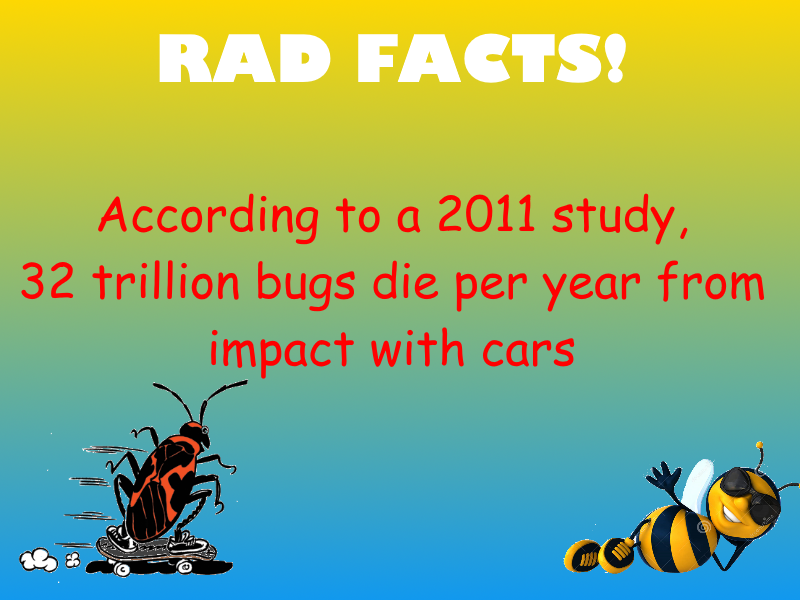
Some aspects of our bodies can be quite bizarre. Let's examine some of the most fascinating and mysterious functions of the human body.
Human hearts are capable of beating 100,000 times per day. This might not seem like much, but consider this: if your heart stopped beating every second for a day, you would die. It can also squirt blood up to 30 feet away.
The human eye contains more than five hundred million pixels. This is half a billion times larger than the average smartphone. A human eye can also grow as large as a football, thanks to the cilia that cling to the eyeball.
The human eye also produces enough light to illuminate a small room. There are about 100,000 miles of blood vessels throughout the human body. These arteries carry oxygen from blood to tissues.

A whole system is called the "diving reflex", which shuts down certain bodily functions when we are submerged in water. When we see something nice, the pupil in our eye expands by 45%.
Our appendix is also present. If left untreated, this organ can become infected. In fact, 80% of the liver in humans can be removed.
The human body is a marvellous place. It can make seven bars of soap from its fat. It is home to many millions of bacteria. The skin is the largest part of the human body. It's oily and has over 1000 species.
The human body is also capable of performing several mundane and strange tasks. For instance, we blink 10 million times a year, but we also do the ominous. The mouth also has a lot of things happening. In addition to the obvious functions mentioned above, your mouth also has other functions such as swallowing and breathing.
The toilet is also there. Toilets are not only the largest and most important parts of a bathroom, but they also provide the primary source of reading material for an average home. In a lifetime, the average person drinks approximately 20,000 gallons.

Apart from obvious reasons, the human body has a "sneezing” function. Over-sneezing can cause a fracture of a rib. The human nose is also home to more than 8,000 taste buds. More than one hundred taste buds are found in the tongue.
The human brain has enough energy to power an entire light bulb. The human body can also produce 350,000 Joules of energy an hour, if you don’t include the ovaries. This is more than enough to make a light bulb blink its eyes.
Another interesting fact about our human bodies is our "diving reflex", our largest organ, our eyes, and our ability to fly. We also have more cars on the road than people. However, there are many more crayfish living in the ocean than humans. This means that it is quite possible to conclude that the human body can be more impressive than most people believe.
FAQ
Which is the most secretive city in the world?
You might be surprised at the answer. It might even make you uncomfortable because it challenges our perception of reality and how we live. But there is an explanation for why this place exists, and it's not what you would expect.
It was also called the City of God in ancient Greek. It was also called the City of Destruction in the Bible.
It's known in India as Kashi (Kashmir). It is also called Novgorod in Russia.
However, in America it is called The Town that Disappeared.
One small New York State town with just 1,200 people vanished. A road sign pointing to the former location of the town was all that was left, except for a few bodies and cars.
This tiny community disappeared without leaving any clues as to where it went or when. Some say it was swallowed up by the Earth. Others claim a meteorite strike destroyed it. Still, others say aliens took it away.
Regardless of what happened, residents of this once-thriving town are certain that their town won't be forgotten forever. They had just moved to a new town.
You can even track the disappearance of Zugspitz on a dedicated website.
So, where exactly did this town go? Well, it's in Switzerland!
Zugspitze is located on the border between Germany and Austria. A huge lake, Lake Zugspitze, is located just beyond the summit.
It's always fascinated me how so many towns disappear, yet others remain. Why does some vanish while others remain? I decided to investigate.
I was interested in learning more about these mysterious towns that are disappearing. What makes a town disappear? How can one place vanish from existence?
It turns out that there are several theories about the phenomenon of vanishing towns. One theory states that a town vanishes when all its buildings are destroyed. Another theory says that the town just moves. Another theory suggests that the town has never existed.
Theories aside, the fact remains that dozens of towns around the globe have been swallowed up by the ground. This video looks into the history of those places and investigates their current status.
What is one of the most amazing facts about the human body
Two eyes, two ears, 2 nostrils, 4 limbs, 1 nose, 1 penis and one mouth are all there. Yes, more than 50 parts to our bodies. But one thing is missing. A heart.
A heart is the pump that circulates blood throughout a body. The blood travels through the veins and arteries, transporting oxygen and nutrients to cells. It also removes carbon dioxide.
Each minute, the heart pumps 5 liters of blood. This is equivalent of an adult drinking 2 to 3 cups of coffee each day.
The heart is constantly pumping blood, 24 hours a week, 365 day a year. Your heart beats nearly 100 times a minute while sleeping.
The color of someone's skin can tell if they are healthy or not. You can see tiny blood vessels, called capillaries, when you look closely at the skin. These tiny vessels transport blood from the larger blood vessels to the heart. The skin becomes blue-colored or purple when blood flow is restricted.
People with sickle cell disease lack red blood cells. Their blood becomes very sticky and hardened, leading to serious illness.
Bandages are used to stop bleeding after you have cut yourself. For wounds to heal properly, blood must flow. To do this, doctors insert a needle through the skin into the vein next to the injury. This allows the blood to drain from the injured area.
A doctor can also insert tubes (catheters), into an artery in the vicinity of where blood clots form. This keeps patients alive until the clot has broken up naturally.
What is the most mysterious place on earth?
Antarctica is the world's most mysterious place on Earth.
We find this place so fascinating. Because it is unlike any place on Earth.
It is isolated, remote, and very hard to visit. This site has more to it than meets your eye.
You will also find some of the oddest wildlife species in this natural wonder.
Let's find out how this mysterious destination became so famous.
Antarctica: The South Pole
Antarctica is not known by anyone. Some believe it refers to "land of ice". Others believe it comes from Greek mythology.
Antarktis, the Greek name for the island on which Zeus' twin brothers were conceived, was used in ancient Greece. According to one source, one of the twins was conceived in winter. Hence, the word antarctic.
Others believe the name was derived from the Greek words tropos, which means turn, and anti, meaning against. This would mean that the land was turned away by the sun.
Whatever the reason Antarctica has always been a fascination for people.
It is the highest, coldest, windiest, dryest, and most populated continent. It is too cold for trees, plants and animals.
This frozen wasteland is still alive.
Here are about 90% of all the living creatures on Earth. There are about 50% of the world's animal, plant and plant species.
What is it that makes Antarctica so unique? Here, water is frozen into ice rather than vaporizing into the air.
This causes large ice masses to rise above the ground.
These floating glaciers cover 80% of the continent. These glaciers are getting larger each year.
Since 1960, the Antarctic ice sheets has grown 60ft.
If the melting goes on, the sea level may rise by as much as 200 feet. That could cause massive flooding around the globe.
This does not mean that everyone is wrong. Some scientists believe that global warming can be beneficial. They suggest that rising temperatures could cause ice sheet melt faster, leading to floods that flush out toxic chemicals from soil and bodies.
However, others caution that this theory sounds a lot like a plot in a science fiction movie.
Have you ever wondered how much trash is produced worldwide each day?
According to the United Nations, the average person produces over 2.5 pounds of daily waste.That adds up to over 25 billion pounds of garbage per year!
Most of the trash ends up at incinerators and landfills. But, what happens to those dumpsters? Most of that trash is shipped out of the country. The rest is dumped abroad, where it pollutes other ecosystems. Now, we know the exact location of all this garbage. Mike Sexton is his full name. He runs Waste Watchers, a company that monitors the movements of trucks carrying trash all across North America. He then gives us a report on what happens next.
Sexton states that he finds his work very fulfilling. CNN spoke with Sexton that they have a lot fun. "We see these big trucks coming through town, so we'll keep following them. "Sexton began following truckers almost 20 year ago.
He stated, "I just fell in Love with It."
He loved the story of the driver who pulled into an abandoned gas station near Los Angeles. Sexton said that the man was searching for a place to store his stuff. "He drove down the road to see this building. He pulled over and went in. "There were 2 large containers that had been rolled off, and they were full of stuff. The guy took everything out and started filling up the truck again. He then looked around and decided to load everything. There were old tires and rags, furniture pieces, mattresses, mattresses and boxes. "It was just an absolute mess. But it had been cleared out before he arrived. There was not a single piece of trash.
So why did this happen? This particular spot used to be a recycling center. People would drive there to recycle their trash. "They'd bring their household items and take them to this building," Sexton explained.And after they finished, they would leave the empty containers behind.
You might see this happen hundreds of times a day. The truck can be stopped running if it is so full of junk that it has to come back hundreds of times per week. The owner eventually decides to dump the truck.
Trash isn’t the only problem we face on the planet.
Most of these particles are made up of tiny pieces of plastic.Some of these plastics end up in landfills or incinerators. Some end up in rivers and oceans, while others end up in fish's stomachs.
Experts warn us that we may soon face an international food shortage if things don't change. "If we keep going like we're going, we're not going to make it," one expert warned.But even though scientists agree that the world is headed toward disaster, most people don't seem worried.
Statistics
- "It is estimated that 75% of people have at least mild gum disease, with the most common symptoms being bleeding when brushing, bad breath, and dark and swollen gums," Dr. Ron Baise, a London-based dentist, tells Romper. (romper.com)
- A 2012 paper published in the Proceedings of the National Academy of Sciences reported that people blink about 15 to 20 times each minute, meaning, if you do the math, you spend about 10% of the time that you're awake blinking. (romper.com)
- Your mouth makes a lot of saliva every day It might seem like way too much, but your salivary glands typically produce anywhere from 0.5 and 1.5 liters a day, according to a 2009 study published in the Journal of Medicine and Life. (romper.com)
- It might not sound like something that's truly plausible — and it is quite rare — but according to a 2015 study published in the Asian Cardiovascular & Thoracic Annals, it's possible to hurt yourself and even break a rib just by sneezing. (romper.com)
- The average human adult male heart rate is between 70 and 72 beats per minute, while the average for adult women is between 78 and 82 beats, which is significantly faster, according to 2014 published in the Journal of Clinical and Diagnostic Research. (romper.com)
External Links
How To
Hollywood Actors With Dark Past
There are many stories that have been told about actors with dark backgrounds. But we will never know because we can not go back and ask them directly. But there's a way to discover more about these actors' lives without digging too deep.
Internet is an incredible tool for finding information about famous persons. You will not only find fascinating facts, but you will also be able to learn about their lives.
Let's say, for instance, you're interested in Samuel L. Jackson's childhood. If you type his name into Google, you'll probably come across a website called "SamuelLJacksonChildhood." This website includes pictures of him as a young man, articles about how he was raised, and even a biography.
This kind of information might sound boring, but it could help you better connect with Samuel L. Jackson. For example, you may be surprised to hear that he was raised in a rough neighborhood but rose to prominence after overcoming many obstacles.
It is possible to feel inspired and motivated to overcome your problems. Or, you may discover that Samuel L. Jackson was working on a film based on Jackson's life. You can connect with Samuel L. Jackson through personal experiences.
These websites are just a few of many. Use them to discover more about the lives famous people. You might be amazed at what you find.